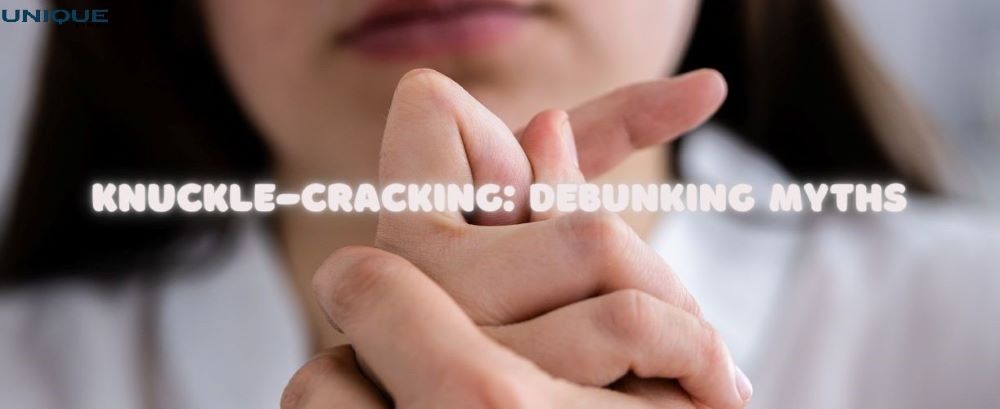Knuckle-Cracking: Dispelling the Myths and Realities

That satisfying pop and crack when you bend your fingers might be a common habit, but it’s surrounded by myths and misconceptions. One prevalent belief is that cracking your knuckles is harmful to your bones. Let’s explore the truth behind knuckle-cracking and find out whether it really hurts your bones.
The Knuckle-Cracking Sound: What’s Going On? When you crack your knuckles, you’re not damaging your bones. Instead, you’re producing that distinctive sound due to the movement of your joints. Within each of your joints, there’s synovial fluid, a lubricant that reduces friction. When you pull or bend your fingers to crack them, you’re momentarily creating a low-pressure zone in the joint. This causes dissolved gases, such as nitrogen and carbon dioxide, to form bubbles. The sudden formation and collapse of these bubbles produce the sound you hear.
Debunking the Bone Damage Myth: Contrary to popular belief, scientific research has not shown any connection between knuckle-cracking and bone damage or arthritis. Several studies have explored this link and consistently found no evidence to support the notion that cracking your knuckles leads to long-term harm.
The Pressure Release: A Temporary Relief Many people crack their knuckles as a habit or to relieve tension. It’s true that the act can temporarily alleviate tightness and discomfort, but the feeling doesn’t last. It’s important to note that knuckle-cracking isn’t a lasting solution for joint discomfort or stiffness.
What the Research Says: Studies examining the potential harm of knuckle-cracking have consistently come up empty-handed. They haven’t found any indication that this common practice leads to arthritis or damages bones. While it might annoy those around you, cracking your knuckles seems to be relatively harmless when it comes to your joint health.
In conclusion, you can rest easy knowing that cracking your knuckles isn’t causing any harm to your bones or joints. However, if you find yourself doing it excessively and it becomes bothersome to others, it might be worth considering alternatives for releasing tension or addressing any discomfort you’re experiencing.
Picture Courtesy: Google/images are subject to copyright








